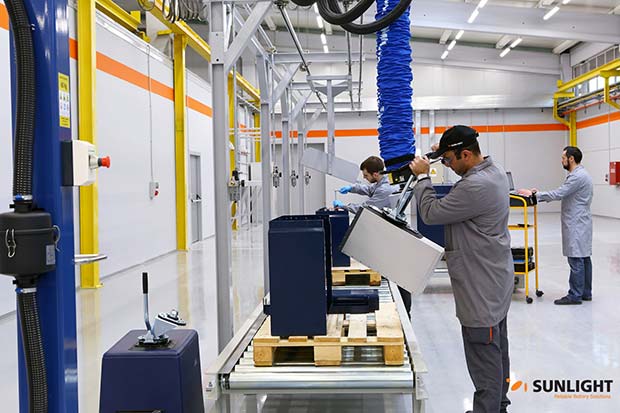Nikolaos Tsiouvaras R&D Director at Systems Sunlight, a leading technology company in the production of batteries for the energy storage industry.
 As coronavirus continues to take hold around the globe and government lockdowns force the closure of many shops, demands for e-commerce sales have reached an all-time high.
As coronavirus continues to take hold around the globe and government lockdowns force the closure of many shops, demands for e-commerce sales have reached an all-time high.
In the US alone, online shoppers are reported to have spent $218.1 billion on retail purchases in the third quarter of 2020, up nearly 50% from the $145.5 billion the U.S. Commerce Department reported for the same quarter a year ago. This surge in demand is reflected across the world and shows no sign of stopping after the latest Digital Commerce 360 Report revealed that 58% of consumers expect to do more online shopping after the pandemic than they did before it.
As a result, warehouses and distribution centres are facing significant pressure to enhance their operational efficiency, essential to which is the optimal performance of warehouse vehicles and the components which comprise them. Power sources play a vital role in ensuring the efficiency of vehicles used to transport goods.
Whilst at present the needs of most forklifts are met by lead-acid batteries, in times of high demand where more fleets are required, lithium-ion offers a more efficient alternative. High energy density coupled with quick recharge time mean that lithium-ion batteries can accommodate multiple shifts whilst also reducing idle time. At Sunlight, our Li.ON force lithium-ion batteries reach full charge in under 90 minutes, allowing for three shift operations without the need for battery change in the middle of the working day.
Unlike other forms of batteries, the performance of forklifts will not start to deteriorate as the lithium batteries run out of power. Sunlight’s Li.ON force range incorporates a state of charge display which provides low battery warning signals to prevent forklifts running out of charge in the middle of a busy warehouse floor.
The high energy density and quick recharge time also negates the need for a second ‘on charge’ battery, which further reduces the footprint of the warehouse dedicated to charging forklift batteries, allowing for more space for product storage and distribution. Most alternatives to lithium will require a backup battery due to the length of time required to recharge, which utilises vital space.
Lithium batteries can further increase the efficiency of equipment when it comes to maintenance and servicing. It is important to look for products from energy storage manufacturers that allow warehouse management systems (WMS) integration which enables warehouse managers to monitor the batteries and pre-empt any issues. Our Li.ON range goes one step further, as the first range on the market to incorporate cloud access as standard, our network of engineers can remotely access the batteries to shut down a damaged module or increase charge significantly reducing unnecessary downtime associated with faulty or low power forklifts.
For further information on System Sunlight’s Li.ON range, please visit: www.systems-sunlight.com




Comments are closed.